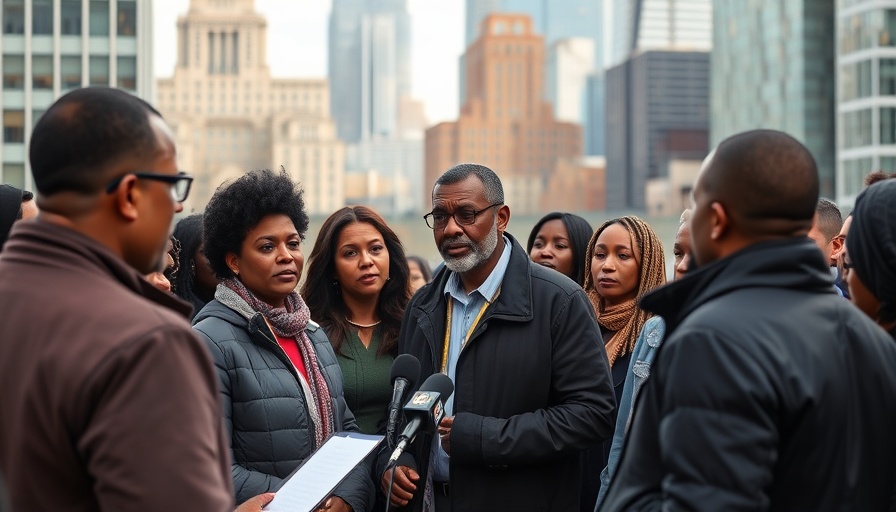
Chronic Crime Crisis Grips Chicago: The Residents Speak Out
In a desperate plea for assistance, Chicago residents are echoing calls for increased support from local and national authorities as the city continues to grapple with escalating crime rates. This urgent demand for help is underscored by reports of persistent violence that has left communities feeling unsafe and overwhelmed.
The Impact of Violence on Communities
Residents of Chicago describe their daily lives as living in fear. 'From bad to worse to disastrous' is how many characterize their experiences as crime wreaks havoc in neighborhoods. The emotional toll of witnessing violence and feeling unsafe has led to heightened anxiety and a strong desire for change. Community leaders and activists emphasize the need for sustained investments in public safety and social services, arguing that crime cannot be tackled solely through police measures but requires a holistic approach involving mental health support and community development.
Searching for Solutions: Diverse Perspectives on Crime
As the crisis continues, various stakeholders are weighing in. Some city officials advocate for reallocating police funding towards community programs aimed at youth engagement and mental health services, while others demand traditional law enforcement approaches to curb the rising violence. This divide illuminates a broader debate on the most effective strategies for addressing crime in urban centers.
Historical Context: Chicago’s Struggles with Crime
The issue of crime in Chicago is not new; it has a long and complex history closely tied to socio-economic disparities and systemic issues. Understanding this historical context is critical to discussing effective solutions. Past initiatives have had mixed results, with long-term strategies often overshadowed by more reactive measures that fail to address underlying causes.
Current Events: The National Landscape of Crime Management
Across the United States, cities are struggling to manage crime effectively, with many politicians facing pushback from constituents who are fed up with safety concerns. These issues extend beyond local governance; they're becoming pivotal points in political debates, shaping voting patterns and influencing election outcomes. As public safety increasingly comes to the forefront of political discourse, the response in Chicago may set a precedent for how other cities approach similar crises.
Calls for Action: What Residents Want
Amidst the chaos, residents have specific demands: they call for enhanced police presence in high-crime areas, improved community outreach programs, and an expansion of economic opportunities. These desires reflect a yearning for tangible change that restores a sense of security and hope among historically marginalized communities. Without taking action, many fear that Chicago's current trajectory will continue to negatively impact the lives of its residents.
Future Predictions: What Lies Ahead for Chicago?
Looking ahead, the trajectory of crime in Chicago may depend on the actions taken by both local leaders and the federal government. Experts suggest that a balanced approach combining enforcement with social solutions could foster improved outcomes, but this will require a collective commitment to investment and policy reform. With the right interventions, Chicago could transform into a model for other urban areas struggling with crime.
As the city navigates this tumultuous landscape, one thing is clear: the voices of residents emphasizing the need for change must be heard. Their cries reflect a broader sentiment that may resonate throughout the nation, highlighting public safety as a fundamental right.
The pressing need for action in Chicago serves as a microcosm of struggles faced by cities across America. It’s a reminder that when communities unite in pursuit of safety and support, they can foster change and rebuild trust with their local authorities.
 Add Element
Add Element  Add Row
Add Row 



Write A Comment